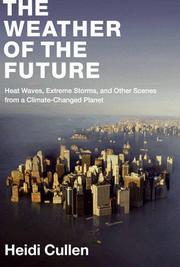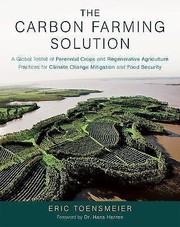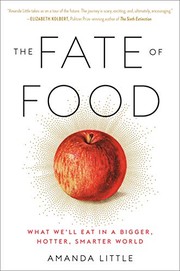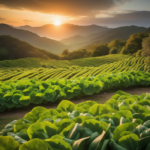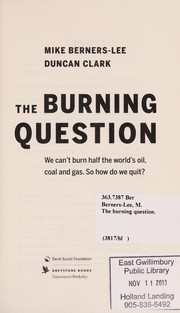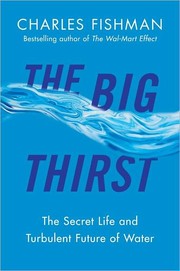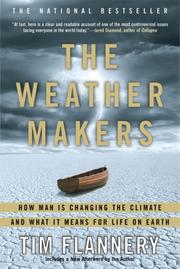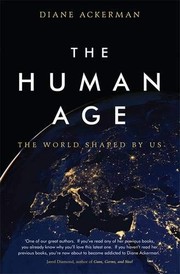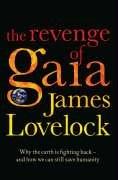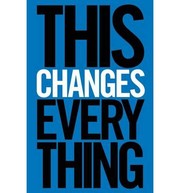Are you looking for the best books on climate to expand your understanding of the pressing issues facing our planet today? Whether you’re an environmental enthusiast, a student, or simply curious about the state of our world, this curated list of the 20 best books about climate will surely captivate and educate you. From in-depth scientific analyses to captivating narratives, these books offer a diverse and comprehensive look at climate change, sustainability, and the impact on our planet. Get ready to dive into the world of climate literature and embark on a journey of enlightenment and awareness with these essential reads on climate.
Contents
- 1 20 Best Climate Books
- 2 The Uninhabitable Earth: Life After Warming
- 3 The Sixth Extinction: An Unnatural History
- 4 The Water Will Come: Rising Seas, Sinking Cities, and the Remaking of the Civilized World
- 5 The Great Derangement: Climate Change and the Unthinkable
- 6 The Madhouse Effect: How Climate Change Denial Is Threatening Our Planet, Destroying Our Politics, and Driving Us Crazy
- 7 The Weather of the Future: Heat Waves, Extreme Storms, and Other Scenes from a Climate-Changed Planet
- 8 The Carbon Farming Solution: A Global Toolkit of Perennial Crops and Regenerative Agriculture Practices for Climate Change Mitigation and Food Security
- 9 The Ends of the World: Volcanic Apocalypses, Lethal Oceans, and Our Quest to Understand Earth’s Past Mass Extinctions
- 10 The Great Transition: Shifting from Fossil Fuels to Solar and Wind Energy
- 11 The Fate of Food: What We’ll Eat in a Bigger, Hotter, Smarter World
- 12 The Burning Question: We Can’t Burn Half the World’s Oil, Coal, and Gas. So How Do We Quit?
- 13 The Hidden Life of Trees: What They Feel, How They Communicate—Discoveries from a Secret World
- 14 The Big Thirst: The Secret Life and Turbulent Future of Water
- 15 The Weather Makers: How Man Is Changing the Climate and What It Means for Life on Earth
- 16 The Human Age: The World Shaped by Us
- 17 The Sixth Extinction: Patterns of Life and the Future of Humankind
- 18 The Great Disruption: Why the Climate Crisis Will Bring On the End of Shopping and the Birth of a New World
- 19 The Revenge of Gaia: Earth’s Climate Crisis and the Fate of Humanity
- 20 This Changes Everything: Capitalism vs. The Climate
- 21 Climate of Hope: How Cities, Businesses, and Citizens Can Save the Planet
- 22 Final Thoughts on Best Climate Books
- 23
20 Best Climate Books
The Uninhabitable Earth: Life After Warming
by David Wallace-Wells
The Uninhabitable Earth: Life After Warming by David Wallace-Wells is a groundbreaking book about climate that presents a stark and compelling portrait of the future we face if we do not take urgent action to address the climate crisis. Wallace-Wells paints a vivid and alarming picture of the potential consequences of unchecked climate change, from extreme weather events and rising sea levels to food and water shortages, mass migration, and political instability.
With meticulous research and powerful storytelling, the author explores the myriad ways in which climate change will impact every aspect of our lives, from public health and the economy to global politics and social justice. The Uninhabitable Earth is a wake-up call, urging readers to confront the harsh realities of a rapidly warming planet and to take meaningful action to mitigate its most devastating effects. This book on climate is a must-read for anyone concerned about the future of our planet and the well-being of future generations.
The Sixth Extinction: An Unnatural History
by Elizabeth Kolbert
The Sixth Extinction: An Unnatural History by Elizabeth Kolbert is a captivating and thought-provoking book about the impact of human activity on the planet’s biodiversity. Kolbert takes readers on a journey through time, exploring the five mass extinctions that have shaped the Earth’s history and the current sixth extinction event, which is driven by human activities such as deforestation, pollution, and climate change. The book delves into the science behind extinction events, the interconnectedness of ecosystems, and the alarming rate at which species are disappearing. Through vivid storytelling and compelling research, Kolbert paints a sobering picture of the consequences of human actions on the natural world. This climate book sheds light on the urgency of addressing environmental issues and the need for conservation efforts to mitigate the ongoing loss of species. The Sixth Extinction is a must-read for anyone interested in understanding the profound impact of human activity on the planet’s biodiversity.
The Water Will Come: Rising Seas, Sinking Cities, and the Remaking of the Civilized World
by Jeff Goodell
The Water Will Come by Jeff Goodell is a compelling book about climate change and its impact on the world’s coastal cities. Goodell takes readers on a journey to explore the consequences of rising sea levels, from the inundation of low-lying island nations to the potential displacement of millions of people living in coastal areas. Through vivid storytelling and in-depth research, the author paints a stark picture of the future as he examines the ways in which climate change is already reshaping our world.
Goodell delves into the complex and often controversial efforts to mitigate the effects of rising seas, from ambitious engineering projects to political and social challenges. The book offers a sobering look at the daunting task of adapting to a changing world and raises important questions about the future of our civilization in the face of environmental crisis. The Water Will Come is a must-read for anyone concerned about the future of our planet and the impact of climate change on our lives.
The Great Derangement: Climate Change and the Unthinkable
by Amitav Ghosh
The Great Derangement: Climate Change and the Unthinkable by Amitav Ghosh is a thought-provoking book on climate that challenges the way we think about and respond to the climate crisis. Ghosh explores the ways in which climate change has been largely ignored in literature, history, and politics, and argues that this dereliction of duty is a sign of a deeper cultural malaise. He makes a compelling case for why we need to reexamine our cultural and literary traditions in order to grapple with the unprecedented challenges posed by climate change.
With his characteristic eloquence and insight, Ghosh delves into the intersections of climate, culture, and politics, and offers a profound exploration of the ways in which climate has been marginalized in our collective imagination. The Great Derangement is a timely and urgent call to action, urging us to confront the climate crisis with courage, creativity, and imagination.
The Madhouse Effect: How Climate Change Denial Is Threatening Our Planet, Destroying Our Politics, and Driving Us Crazy
by Michael E. Mann and Tom Toles
The Madhouse Effect is a powerful and timely book about climate change denial and its devastating impact on our planet and politics. Written by climate scientist Michael E. Mann and Pulitzer Prize-winning political cartoonist Tom Toles, this book presents a compelling and accessible overview of the scientific evidence for climate change, as well as the tactics and misinformation used by denialists to sow doubt and confusion.
With wit and insight, Mann and Toles dissect the absurdities and dangers of climate change denial, while also offering a call to action for individuals and policymakers to confront the reality of our changing climate and take meaningful steps towards solutions. The Madhouse Effect is a thought-provoking and eye-opening read that will leave you both informed and inspired to join the fight against climate change denial. Whether you’re a climate enthusiast or just looking to learn more about this pressing issue, this book is a must-read for anyone concerned about the future of our planet.
The Weather of the Future: Heat Waves, Extreme Storms, and Other Scenes from a Climate-Changed Planet
by Heidi Cullen
The Weather of the Future: Heat Waves, Extreme Storms, and Other Scenes from a Climate-Changed Planet by Heidi Cullen is a captivating and insightful book about the impact of global warming on our planet. In this enlightening climate book, Cullen explores the potential future weather scenarios that could occur as a result of climate change.
Through a combination of scientific research and real-life examples, Cullen paints a vivid picture of what the world’s weather could look like in the coming decades. From more frequent and intense heat waves to extreme storms and rising sea levels, she provides a compelling analysis of the potential consequences of a changing climate.
With a clear and engaging writing style, Cullen presents complex scientific concepts in a way that is accessible to all readers. This book on climate is not only informative but also serves as a call to action, urging readers to consider the impact of their actions on the environment and the future of our planet.
The Carbon Farming Solution: A Global Toolkit of Perennial Crops and Regenerative Agriculture Practices for Climate Change Mitigation and Food Security
by Eric Toensmeier
The Carbon Farming Solution is a comprehensive guide to regenerative agriculture and perennial crops as a means of mitigating the effects of global warming. Author Eric Toensmeier presents a global toolkit of innovative and practical methods for farmers and land managers to sequester carbon, improve soil health, and enhance food security. This book on climate change explores the potential of perennial crops, agroforestry, and other regenerative practices to not only reduce greenhouse gas emissions, but also to create resilient and productive agricultural systems.
The Ends of the World: Volcanic Apocalypses, Lethal Oceans, and Our Quest to Understand Earth’s Past Mass Extinctions
by Peter Brannen
The Ends of the World by Peter Brannen is a fascinating exploration of Earth’s tumultuous past and the cataclysmic events that led to mass extinctions. This captivating book about climate takes readers on a journey through time, uncovering the volcanic eruptions, lethal oceans, and other natural disasters that have shaped our planet’s history.
Brannen’s engaging writing style and in-depth research shed light on the complex interplay between geological forces and biological life, offering a compelling narrative that is both informative and thought-provoking. From the Permian-Triassic extinction to the more recent Cretaceous-Paleogene extinction, the author delves into the causes and consequences of these events, providing valuable insights into the Earth’s resilience and vulnerability.
Whether you’re a science enthusiast or simply curious about the world around you, The Ends of the World is a must-read climate book that will deepen your understanding of our planet’s history and the potential impact of future environmental changes. Brannen’s masterful storytelling and eye-opening revelations make this book a captivating exploration of Earth’s past mass extinctions.
The Great Transition: Shifting from Fossil Fuels to Solar and Wind Energy
by Lester R. Brown
The Great Transition: Shifting from Fossil Fuels to Solar and Wind Energy by Lester R. Brown is a groundbreaking book on climate change and renewable energy. Brown, a renowned environmentalist and founder of the Earth Policy Institute, provides a compelling overview of the global shift towards solar and wind energy as a solution to the challenges of climate change.
In this timely and informative book about climate, Brown explores the urgent need for transitioning from fossil fuels to clean, sustainable energy sources. He presents a comprehensive analysis of the economic, environmental, and social benefits of embracing renewable energy technologies. Through engaging storytelling and thorough research, Brown offers a hopeful vision for a sustainable future and outlines practical strategies for achieving a low-carbon economy.
With its accessible writing style and insightful perspectives, The Great Transition is a must-read for anyone interested in the intersection of energy, the environment, and climate change. Brown’s expertise and passion for the subject shine through in this essential climate book, making it an inspiring and informative read for all audiences.
The Fate of Food: What We’ll Eat in a Bigger, Hotter, Smarter World
by Amanda Little
The Fate of Food: What We’ll Eat in a Bigger, Hotter, Smarter World by Amanda Little is a fascinating exploration of the future of food in a changing world. This thought-provoking book delves into the impact of environmental changes on our food production and consumption, offering valuable insights into the challenges and innovations that lie ahead.
Amanda Little takes readers on a journey across the globe, investigating the ways in which climate change, population growth, and technological advancements are reshaping the food industry. Through engaging storytelling and in-depth research, she paints a compelling picture of the complex relationship between food and the environment.
With a balanced approach, The Fate of Food offers a hopeful outlook on how we can address the pressing issues of food sustainability and security. It provides readers with a deeper understanding of the interconnectedness of food, climate, and technology, making it a must-read for anyone interested in the future of our food system. This climate book is a timely and eye-opening exploration of the challenges and opportunities that lie ahead for the fate of our food.
The Burning Question: We Can’t Burn Half the World’s Oil, Coal, and Gas. So How Do We Quit?
by Mike Berners-Lee and Duncan Clark
The Burning Question: We Can’t Burn Half the World’s Oil, Coal, and Gas. So How Do We Quit? by Mike Berners-Lee and Duncan Clark is a thought-provoking book on climate that delves into the urgent need to transition away from fossil fuels. With a clear and accessible writing style, the authors tackle the difficult questions surrounding our reliance on oil, coal, and gas, and offer innovative solutions for a sustainable future.
This book about climate change explores the environmental, economic, and social implications of continuing to burn fossil fuels at our current rate. Through a combination of expert analysis and engaging storytelling, Berners-Lee and Clark provide readers with a comprehensive understanding of the complexities surrounding the issue and the potential paths forward.
Whether you’re already well-versed in climate science or just beginning to explore the topic, The Burning Question is a must-read for anyone seeking a deeper understanding of the challenges and opportunities that lie ahead in the transition to a low-carbon future.
The Hidden Life of Trees: What They Feel, How They Communicate—Discoveries from a Secret World
by Peter Wohlleben
The Hidden Life of Trees: What They Feel, How They Communicate—Discoveries from a Secret World by Peter Wohlleben is a captivating book on climate that delves into the fascinating world of trees and their intricate communication and social networks. Wohlleben, a forester, reveals the astonishing ways in which trees interact with each other, from sharing nutrients and information to providing mutual support in the face of environmental challenges.
This insightful climate book takes readers on a journey through the forest, uncovering the hidden mechanisms that enable trees to thrive and survive. Wohlleben’s writing is both informative and profoundly moving as he explores the profound interconnectedness of forests and the vital role they play in sustaining life on Earth. Through his vivid storytelling, readers will gain a newfound appreciation for the intelligence and resilience of trees, and a deeper understanding of the complex ecosystems that are essential for a healthy planet.
The Big Thirst: The Secret Life and Turbulent Future of Water
by Charles Fishman
The Big Thirst, a book about water by Charles Fishman, offers a fascinating exploration of the intricate and often overlooked world of water. Fishman delves into the essential role that water plays in our everyday lives, from the water cycle to our personal consumption and the global economy. With captivating storytelling and thorough research, the author sheds light on the history, science, and future of water, providing a thought-provoking look at how we use, manage, and sometimes waste this precious resource.
Through insightful examples and compelling anecdotes, Fishman paints a vivid picture of the complex challenges and opportunities related to water, making this book on climate both informative and engaging. The Big Thirst encourages readers to reconsider their relationship with water and to become more conscious of its significance in a rapidly changing world. Whether you’re an environmental enthusiast or simply curious about the future of our planet, this climate book is sure to leave a lasting impression.
The Weather Makers: How Man Is Changing the Climate and What It Means for Life on Earth
by Tim Flannery
The Weather Makers: How Man Is Changing the Climate and What It Means for Life on Earth by Tim Flannery is a groundbreaking book about climate. Flannery, an acclaimed scientist and environmentalist, provides a comprehensive overview of the current state of the Earth’s climate and the impact of human activities on it. He presents compelling evidence and explains the science behind climate change in a highly accessible and engaging manner.
Flannery’s book on climate is not just a doom-and-gloom forecast; it also offers hope and practical solutions for addressing the challenges of climate change. From the melting polar ice caps to the rising sea levels, he paints a vivid picture of the potential consequences of inaction. However, he also emphasizes the collective power of individuals, communities, and governments to mitigate the effects of climate change and work towards a sustainable future.
Overall, The Weather Makers is a must-read for anyone seeking a deeper understanding of the complex issues surrounding climate change and the urgent need for action to preserve our planet for future generations.
The Human Age: The World Shaped by Us
by Diane Ackerman
The Human Age: The World Shaped by Us by Diane Ackerman is a captivating exploration of the Anthropocene era, where humans have become the dominant force shaping the planet and its ecosystems. Ackerman delves into the ways in which human activities have altered the Earth’s climate, biodiversity, and landscapes, and offers a thought-provoking look at the impact of our species on the natural world.
This compelling book on climate examines the profound ways in which human civilization has transformed the planet, from the development of agriculture to the rise of urbanization and technological advancements. Ackerman’s vivid prose and extensive research offer a comprehensive understanding of the complex relationship between humans and the environment, highlighting both the challenges and opportunities presented by the current ‘human age’.
Through insightful storytelling and scientific insight, The Human Age invites readers to contemplate the future of our planet and consider the role we play in shaping the world for generations to come.
The Sixth Extinction: Patterns of Life and the Future of Humankind
by Richard E. Leakey and Roger Lewin
The Sixth Extinction: Patterns of Life and the Future of Humankind by Richard E. Leakey and Roger Lewin is a compelling book on climate that explores the impact of human activity on the natural world. Leakey and Lewin present a thought-provoking analysis of the current mass extinction event, drawing on evidence from paleontology, biology, and anthropology to illustrate the scope of the crisis. The authors argue that human actions, such as deforestation, pollution, and overconsumption, are driving countless species to extinction, leading to a disruption of the delicate balance of life on Earth. However, the book also offers a glimmer of hope, as Leakey and Lewin propose potential solutions to mitigate the damage and prevent further loss of biodiversity. Through their engaging and accessible prose, the authors deliver a powerful message about the urgent need to address the climate crisis and the potential consequences for the future of humankind.
The Great Disruption: Why the Climate Crisis Will Bring On the End of Shopping and the Birth of a New World
by Paul Gilding
The Great Disruption: Why the Climate Crisis Will Bring On the End of Shopping and the Birth of a New World by Paul Gilding is a thought-provoking book about the impending climate crisis and its impact on the global economy. Gilding, a renowned environmentalist and sustainability expert, presents a compelling argument for the inevitable shift towards a more sustainable and equitable world in the face of worsening environmental challenges. The book delves into the interconnectedness of climate change, economic systems, and social structures, offering a stark warning about the urgent need for transformative action.
Through a combination of meticulous research and compelling storytelling, Gilding paints a vivid picture of the potential consequences of inaction on the climate front, while also offering a glimmer of hope for a better future. This insightful and timely book on climate is a must-read for anyone concerned about the future of our planet and seeking inspiration for meaningful change.
The Revenge of Gaia: Earth’s Climate Crisis and the Fate of Humanity
by James Lovelock
The Revenge of Gaia: Earth’s Climate Crisis and the Fate of Humanity by James Lovelock is a groundbreaking book about climate that explores the dire consequences of human-induced environmental changes. Lovelock, a renowned environmentalist and scientist, presents a compelling argument that the earth is a self-regulating system, which he calls Gaia, and warns that our actions are pushing the planet to a tipping point.
Lovelock’s book on climate provides a wake-up call to humanity, urging us to take immediate action to mitigate the impact of climate change. He discusses the potential consequences of inaction, including rising sea levels, extreme weather events, and the threat to human civilization itself.
With a sense of urgency and a wealth of scientific evidence, Lovelock’s climate book offers a sobering yet essential perspective on the state of our planet. The Revenge of Gaia is a must-read for anyone concerned about the future of the Earth and the fate of humanity in the face of the climate crisis.
This Changes Everything: Capitalism vs. The Climate
by Naomi Klein
This Changes Everything: Capitalism vs. The Climate by Naomi Klein is a thought-provoking book about the impact of capitalism on the environment. In this eye-opening work, Klein argues that the current economic system is at the root of the climate crisis, and that meaningful change can only happen through a radical shift in our approach to capitalism. Through extensive research and compelling storytelling, she challenges the belief that market-based solutions and technological advancements alone can save us from the impending climate disaster. Klein explores how the pursuit of profit and endless growth has led to environmental degradation, social inequality, and the exploitation of natural resources.
This book on climate presents a powerful case for reimagining our economic and political structures in order to address the urgent environmental challenges we face. Klein’s compelling narrative makes it a must-read for anyone interested in understanding the intersection of capitalism and the environment, and the potential for transformative change.
Climate of Hope: How Cities, Businesses, and Citizens Can Save the Planet
by Michael Bloomberg and Carl Pope
Climate of Hope: How Cities, Businesses, and Citizens Can Save the Planet is an insightful and hopeful book about the urgent need for action in the face of environmental challenges. Written by Michael Bloomberg, former mayor of New York City, and Carl Pope, former executive director of the Sierra Club, this climate book offers a fresh perspective on the pressing issue of sustainability.
The authors argue that the solutions to the world’s environmental problems can be found in the hands of cities, businesses, and citizens. Instead of focusing solely on the negative impacts of human activity on the environment, Bloomberg and Pope propose practical and achievable steps that can be taken to combat climate change.
With a combination of real-world examples and innovative ideas, Climate of Hope inspires readers to see the potential for positive change in the fight against global warming. This book on climate offers a refreshing message of hope and empowerment, urging individuals and communities to take action to create a more sustainable and resilient future for our planet.
Final Thoughts on Best Climate Books
In conclusion, these 20 best books about Climate offer a diverse and insightful look at the pressing issue of climate change. From scientific analysis to personal narratives, these books provide valuable perspectives and information on the challenges we face and the potential solutions. Whether you’re seeking to deepen your understanding of climate change or looking for inspiration to take action, these books are essential reading for anyone concerned about the future of our planet.
Which book about Climate is best?
The best book on Climate can vary with personal preference, but three widely recommended titles are:
- The Uninhabitable Earth: Life After Warming by David Wallace-Wells,
- The Sixth Extinction: An Unnatural History by Elizabeth Kolbert,
- The Water Will Come: Rising Seas, Sinking Cities, and the Remaking of the Civilized World by Jeff Goodell.
Each offers valuable insights and could be a great starting point.
What are the best books to learn about Climate?
For those looking to learn about Climate, there is a wealth of literature that can provide a comprehensive understanding of the subject. Some of the most highly recommended books include:
- The Uninhabitable Earth: Life After Warming by David Wallace-Wells,
- The Sixth Extinction: An Unnatural History by Elizabeth Kolbert,
- The Water Will Come: Rising Seas, Sinking Cities, and the Remaking of the Civilized World by Jeff Goodell,
- The Great Derangement: Climate Change and the Unthinkable by Amitav Ghosh,
- The Madhouse Effect: How Climate Change Denial Is Threatening Our Planet, Destroying Our Politics, and Driving Us Crazy by Michael E. Mann and Tom Toles,
- The Weather of the Future: Heat Waves, Extreme Storms, and Other Scenes from a Climate-Changed Planet by Heidi Cullen,
- The Carbon Farming Solution: A Global Toolkit of Perennial Crops and Regenerative Agriculture Practices for Climate Change Mitigation and Food Security by Eric Toensmeier,
- The Ends of the World: Volcanic Apocalypses, Lethal Oceans, and Our Quest to Understand Earth’s Past Mass Extinctions by Peter Brannen,
- The Great Transition: Shifting from Fossil Fuels to Solar and Wind Energy by Lester R. Brown,
- The Fate of Food: What We’ll Eat in a Bigger, Hotter, Smarter World by Amanda Little
These books offer a range of perspectives on Climate, covering various aspects and approaches to the subject.
What are the best books about Climate?
The best books about Climate are:
- The Uninhabitable Earth: Life After Warming by David Wallace-Wells,
- The Sixth Extinction: An Unnatural History by Elizabeth Kolbert,
- The Burning Question: We Can’t Burn Half the World’s Oil, Coal, and Gas. So How Do We Quit? by Mike Berners-Lee and Duncan Clark,
- The Hidden Life of Trees: What They Feel, How They Communicate—Discoveries from a Secret World by Peter Wohlleben,
- The Ends of the World: Volcanic Apocalypses, Lethal Oceans, and Our Quest to Understand Earth’s Past Mass Extinctions by Peter Brannen,
- The Weather of the Future: Heat Waves, Extreme Storms, and Other Scenes from a Climate-Changed Planet by Heidi Cullen.
Each offers unique insights into the subject. While these books about Climate are highly regarded, it’s important to note that any list of ‘best’ books is subjective and reflects a range of opinions.
What are the best Climate books of all time?
Choosing the best Climate books of all time can vary depending on who you ask, but five titles that are often celebrated include
- The Uninhabitable Earth: Life After Warming by David Wallace-Wells,
- The Sixth Extinction: An Unnatural History by Elizabeth Kolbert,
- The Madhouse Effect: How Climate Change Denial Is Threatening Our Planet, Destroying Our Politics, and Driving Us Crazy by Michael E. Mann and Tom Toles,
- The Ends of the World: Volcanic Apocalypses, Lethal Oceans, and Our Quest to Understand Earth’s Past Mass Extinctions by Peter Brannen,
- and The Burning Question: We Can’t Burn Half the World’s Oil, Coal, and Gas. So How Do We Quit? by Mike Berners-Lee and Duncan Clark.
Each of these books has made a significant impact in the field of Climate and continues to be influential today.






